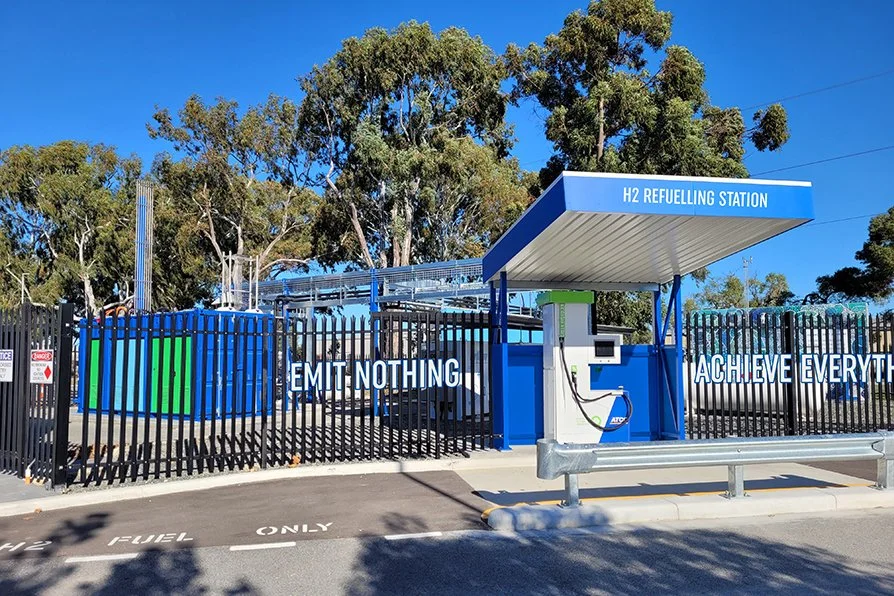H2 blend supplying homes in WA
ATCO’s hydrogen refueling station in Western Australia
When GasNZ attended the International Gas Union council meetings in Perth, it included tours of a range of progressive gas projects. Usefully for our members events like these mean we are able to share contacts and leads and to support the establishment of a trans-Tasman gas cohort.
ATCO Australia was one such company and it was interesting to see the volumes of renewable hydrogen they are producing and blending with natural gas in their network.
The demonstration plant is now capable of producing up to 65kg of hydrogen a day, using solar power to split hydrogen and oxygen from water using an electrolyser, and the hydrogen blend is reaching 3000 homes in the neighbouring city of Cockburn, near Perth in Western Australia.
ATCO Australia has over 800,000 connections and 14,500 km of pipeline in Western Australia.
The hydrogen is being used in various ways as part of the trial.
It is currently being safely blended as a 2 percent mix with natural gas in the grid for household supply.
It fuels the centre’s own hydrogen fuel cell-powered electric vehicles (which convert the hydrogen back into electrical energy).
Any excess hydrogen produced by the solar cells and electrolyser during the day is also used to generate electricity at night – with the hydrogen acting as an energy storage medium, similar to a battery.
ATCO’s marketing and customer experience manager Peter Shaw, says the innovation hub has also proved popular as a demonstration facility – attracting international visitors and tours.
“We’re quite unique globally in terms of having all these applications in one spot as a test bed.
“We’ve had delegations from Singapore, the UK, Germany, the United States as well as New Zealand – including visitors from government agencies – who are very interested in what we’re doing here.
Safety is a central part of the trial, he says. And regulators around the world are keen to learn from ATCO’s real-world experience.
A demonstration house is near completion, which will incorporate both direct hydrogen-fuelled appliances and electric appliances powered by fuel cells fed by stored hydrogen.
The hub is also being used as a training facility for technicians, giving them experience with working with hydrogen.
By its nature, as the smallest molecule, hydrogen can escape more easily than other gases, Shaw says. So methods of safe and efficient storage is a challenge that both ATCO and researchers around the world are continually trialling.
The experience gained and lessons learned from ATCO’s demonstration plant will pave the way for others to take advantage of the potential of renewable hydrogen to contribute to decarbonisation of the available energy supply.

